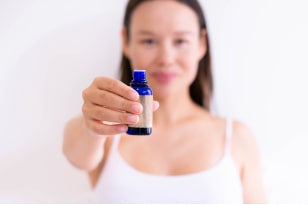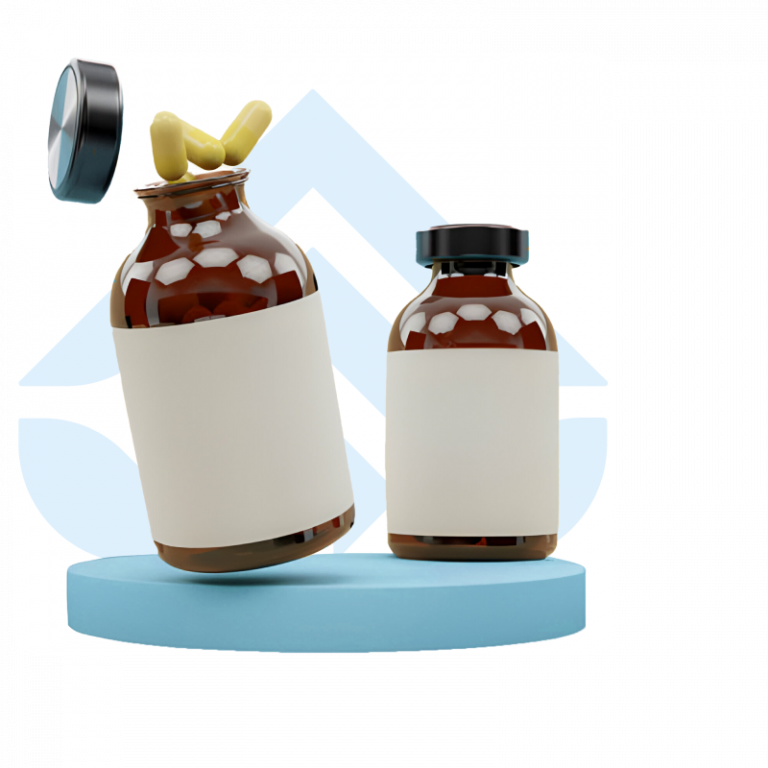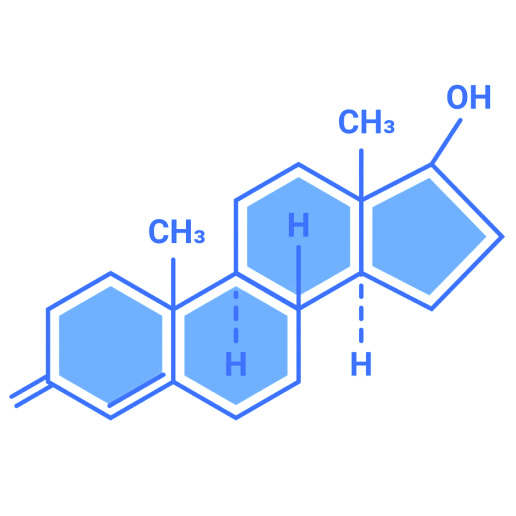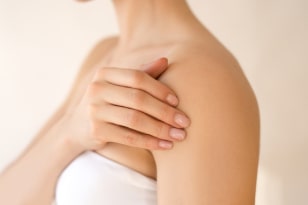
Bioidentical testosterone can be given as a weekly injection In 1/10th the dosage used for men. This is a very reliable way to increase testosterone and treat symptoms.
Testosterone is important in women. It is produced in higher amounts than estrogen in a woman’s body, and it helps regulate sex drive, energy, mood, sense of well-being, muscle mass and strength, and metabolism.
Testosterone levels decline during perimenopause and menopause, similar to estrogen and progesterone. Symptoms of low testosterone include low energy and fatigue, low sex drive, loss of muscle and strength, weight gain, and mood changes.


Low testosterone can cause physical and mental fatigue. Testosterone therapy can increase energy and decrease fatigue.
Low testosterone can cause reduced libido and sex drive, and decreased sexual satisfaction. Testosterone therapy can increase sex drive and increase sensitivity.
Low testosterone can cause bone and muscle loss, and midsection weight gain. Testosterone therapy helps to preserve bone and muscle mass, and improves metabolism.
Low testosterone can cause anxiety, irritability, depression, and a decrease in psychological well-being. Testosterone therapy can improve mood and sense of well-being.
Low testosterone can affect memory, concentration, attention span, and focus. Testosterone therapy can improve cognitive function.
Low testosterone can cause or contribute to hot flashes, sleep problems, and joint and muscle pain. Testosterone therapy can improve all these symptoms.

The rationale for testosterone therapy in women is to treat symptoms of low testosterone to improve quality of life and general health. Studies suggest that testosterone is breast protective, cardiac protective, bone protective, brain protective, and anti-inflammatory.
The determination of whether you are a candidate for testosterone replacement requires an assessment by an expert to evaluate your symptoms.
Testosterone therapy can eliminate the need for other pharmaceuticals, including SSRI’s, osteoporosis medications, anxiety medications, stimulants like Adderall, and anti-inflammatory medications.

Studies over the past 80 years have shown testosterone to be safe in women. Hundreds of thousands of women in the United States are on testosterone replacement to treat symptoms of perimenopause and menopause. Testosterone, in physiologic doses, doesn’t cause masculinization, voice changes, hair loss, or aggression.
Potential side effects of testosterone, in physiologic doses, include mild acne and mild hair growth.

There is no FDA approved testosterone formulation for women in the United States, so testosterone replacement is typically done off label using testosterone preparations for men in 1/10 the dosage.

Bioidentical testosterone can be given as a weekly injection In 1/10th the dosage used for men. This is a very reliable way to increase testosterone and treat symptoms.

Bioidentical testosterone cream applied to the skin or the genitals is an effective delivery modality that avoids injections and the invasiveness of pellet insertion.

Bioidentical testosterone pellets are implanted under the skin approximately every 3 months and result in more stable testosterone blood levels.
Yes, we accept blood tests done within 6 months of evaluation and treatment. Lab work previously obtained is not required for your initial consultation but may be helpful if it was conducted in the past 3-6 months. Labs may be requested prior to initiating hormone replacement therapy and are routinely obtained as part of ongoing monitoring and follow-up.
Testosterone is an important hormone for women also. Women actually make more testosterone in their bodies than estrogen. Symptoms of low testosterone in women include low libido, fatigue, loss of focus, anxiety, depression, muscle pain, mood swings, memory loss, migraines, weight gain, and belly fat. Testosterone decreases in women before estrogen, typically during their 30’s. Birth control pills also cause testosterone deficiency by suppressing the function of the ovaries, which make 95% of a woman’s testosterone.
Hormones can be prescribed in many different types of formulations, some of which are better than others. Oral estrogen increases the risk for blood clots, whereas topical formulations, pellets, and vaginal formulations don’t. Progesterone is best given as an oral medication. Testosterone is best given as an oral formulation or injectable formulation. Your provider will customize a plan that’s best for you based on your needs and preferences.
Often benefits will be felt within the first week, but it can take several weeks to months to feel the full effect of hormone therapy.
Bioidentical hormones are molecularly identical to the hormones our body’s naturally make. This means they function in exactly the same way as our natural hormones. Synthetic hormones (patented and sold by pharmaceutical companies) are molecularly different, and therefore function differently than our natural hormones.
Yes! Bioidentical hormones are molecularly the same as the hormones your body normally makes, and therefore function exactly the same as your normal hormones. Pharmaceutical companies make altered version of hormones (so they can patent them), but they don’t work in the same way as your body’s normal hormones. Mother Nature has provided us with the ideal hormones, and pharmaceutical companies, unsurprisingly, have not been able to improve upon them.
We use only large, US-licensed compounding pharmacies that buy their pharmaceuticals from FDA registered manufacturing facilities, and provide certificates of analysis to prove the integrity of the pharmaceuticals they use.
Compounding pharmacies offer a wider variety of bioidentical hormone formulations than pharmaceutical companies, which makes it easier to tailor medication plans for individual patients. There are FDA approved bioidentical hormone formulations (micronized progesterone, estradiol patches), but the formulations and dosages are limited. In general, pharmaceutical companies prioritize medications that they can patent, and they can’t patent naturally occurring compounds. We use both FDA approved and compounded bioidentical hormones.

Schedule a free consult with Allison Mollet, PA, to learn more about bioidentical hormone therapy and whether it’s right for you.